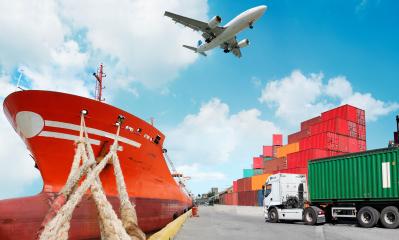The rate of trade misinvoicing as a percentage of total import/export trade for Nigeria with all of its global trading partners was 17.9%, according to a new study conducted by Global Financial Integrity (GFI), a Washington DC-based think tank. This means 17.9% of Nigeria’s trade with all its global trading partners was fraudulently misinvoiced.
The report disclosed that Nigeria lost a whopping USD43.9 billion ((N15.8 trillion) between 2008 and 2017 to fraudulent trade misinvoicing.
The report further stated that in 2017 alone, Nigeria lost USD5.1 billion (N1.836 trillion) to trade misinvoicing.
“It is unclear where this money has gone to, but it has not been realized in tax revenues by Nigerian authorities,” GFI Communications Coordinator, Maureen Heydt, said in an emailed statement sent to SHIPS & PORTS.
The GFI report titled ‘Trade-Related Illicit Financial Flows in 135 Developing Countries: 2008-2017” and released on Tuesday, covered trade between 135 developing countries and 36 advanced economies.
It said major developing economies across the global geo-political zones were estimated to have recorded about $8.8 trillion as value gaps in their trade with developing countries over the ten-year period spanning 2008-2017.
Identified as one of the largest components of measurable illicit financial flows (IFFs) between and among 135 developing countries and 36 advanced economies, trade misinvoicing occurs when importers and exporters deliberately falsify the stated prices on the invoices for goods they are importing or exporting as a way to illicitly transfer value across international borders, evade tax and/or customs duties, launder the proceeds of criminal activity, circumvent currency controls, and hide profits offshore.
An analysis of the report showed that out of the $8.8 trillion global trade value gaps, in 2017 alone the sum of the value gaps identified in trade between 135 developing countries and 36 advanced economies stood at US$817.6 billion, the most recent year for which data are available.
The analysis further reflected that developing countries with the largest annual average value gaps (in US dollars) in their bilateral trade with 36 advanced economies over the ten-year period include China, US$323.8 billion; Mexico, US$62.9 billion; Russia, US$56.8 billion; Poland, US$40.9 billion; and Malaysia, US$36.7 billion.
In addition, the report showed that developing countries with the largest value gaps as a percent of their total bilateral trade with the 36 advanced economies over the ten-year period, were The Gambia, 37.3 percent; Togo, 30.2 percent; The Maldives, 27.4 percent; Malawi, 26.8 percent; and Bahamas, 26.6 percent.
The GFI noted further that by contrast, China ranked 80th out of the 135 developing countries analyzed, with an average value gap of 18.8 percent of its total bilateral trade with the 36 advanced economies over the same period.
A further analysis of the trade value gaps reflected that the three largest value gaps (in US dollars) by harmonized system (HS) chapter between the 135 developing countries and 36 advanced economies over 2008-2017, were Electrical Machinery (HS 85), US$153.7 billion; Mineral Fuels (HS 27) – US$113.2 billion; and Machinery (HS 84), US$111.7 billion.
In addition, the report showed that the average sizes of the value gaps by dollar amount between the developing country regions and the 36 advanced economies over the ten-year period were Asia, US$476.3 billion; Developing Europe, US$167.9 billion; Western Hemisphere, US$131.5 billion; Middle East/North Africa, US$70.6 billion; and Sub-Saharan Africa, US$27.2 billion.
“Overall, the analysis shows trade misinvoicing is a persistent problem across developing countries, resulting in potentially massive revenue losses – at a time when most countries are struggling to mobilize domestic resources to achieve the internationally-agreed 2030 Sustainable Development Goals (SDGs)”, GFI observed.
Commenting on the report, the President and CEO of GFI, Tom Cardamone, said, “Developing countries are losing a significant percentage of the value of their trade transactions. Indeed, in 2017, the value gap associated with trade misinvoicing amounted to 18 percent of developing country trade.
“If the integrity of trade transactions cannot be assured, it is unlikely countries will be able to achieve the UN Sustainable Development Goals by the 2030 deadline.”
Cardamone also noted that poorer nations are often the hardest hit by misinvoicing.
“Of the ten countries with the largest average value gap from 2008-2017, six are in Africa and are among the poorest countries in the world, including Sao Tome and Principe, The Gambia, and Burundi,” he added.
